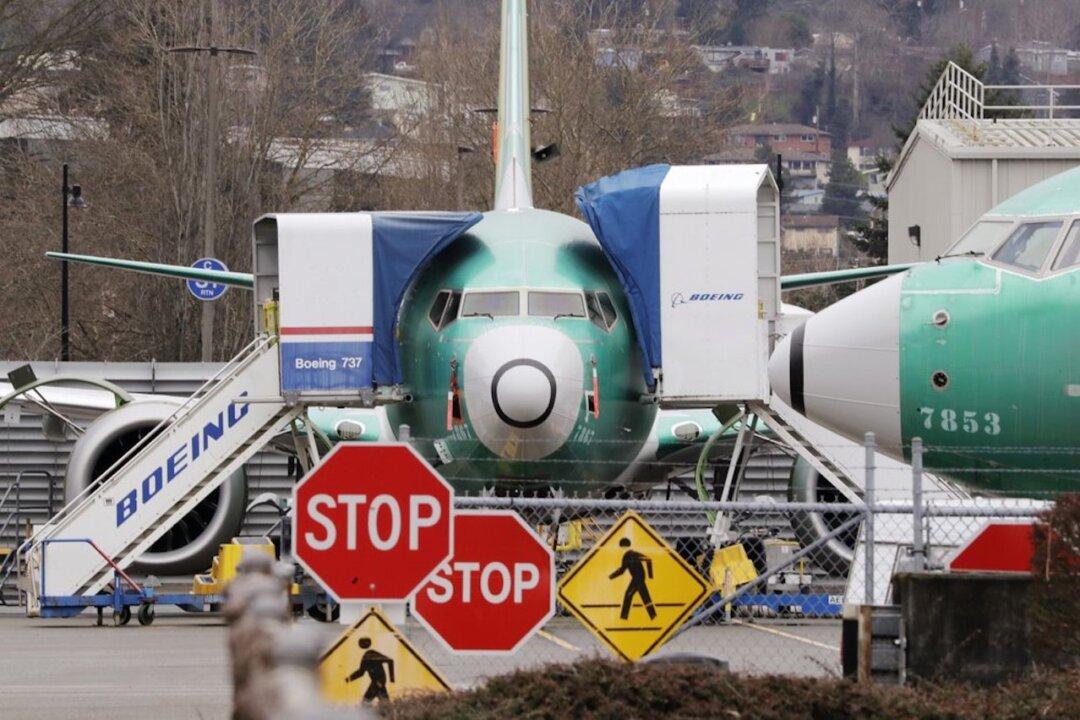Shares of Boeing Co. rallied by around 3 percent in premarket trading Wednesday despite the industrial giant posting its first annual loss in over 20 years as the 737 MAX crisis drags on and pulls down the bottom line.
The planemaker was forced to ground its best-selling aircraft in March last year after two deadly crashes that killed 346 people. Boeing said it expects the financial toll from the grounding to hit nearly $19 billion.





